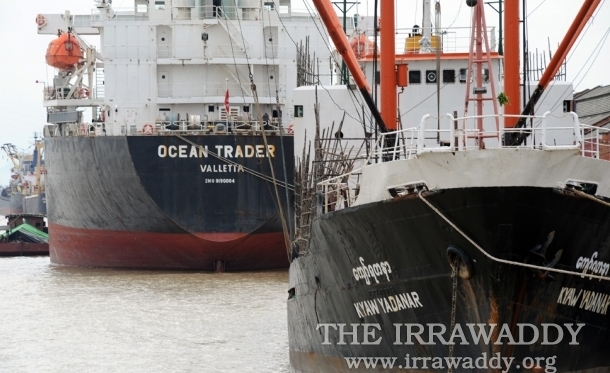BANGKOK—Burma’s economy can triple in size by 2030 and make up some ground lost to wealthier neighbors, say analysts, if sufficient reforms are undertaken in the coming years.
A year of politically-focused changes such as releasing political prisoners, and the Monday ending of pre-publication censorship for the country’s media, will be followed by a series of economic reforms, the Burmese government says, with new foreign investment regulations likely to be passed into law in coming weeks.
If the reforms stay on track, the Asian Development Bank (ADB) believes that Burma can attain “middle income” economic status by 2030, saying that the economy has the potential to grow by seven-to-eight percent per annum in the intervening years.
The World Bank defines a middle income country as one with a per capita GDP of US $1,025—a status long-attained by neighbors such as Thailand, Malaysia and more recently Vietnam, which launched its economic glasnost in 1986.
“I underscore the word potential as there are a lot of challenges that the country faces,” said Stephen Groff, ADB vice-president, speaking at the launch of the bank’s report on the Burma economy at the Foreign Correspondents Club in Bangkok on Monday.
Sixty-six percent of the population lives in the countryside, according to 2010 World Bank numbers, and if Burma’s economic reforms are to improve lives outside towns and cities, better living and working conditions for the country’s rural poor will be key.
To reach its potential level of prosperity, “[Burma] need to maintain macro-economic stability, they need to keep inflation low and under control,” Groff said during a recent video interview. “They need to keep sustainable and realistic budgets in place.”
Farming in Burma remains antiquated, say those involved in the country’s agriculture sector. Aung Zaw Oo, joint-secretary of the Myanmar Rice Industry Association said that “we need to improve the awareness and the access to technology for farmers. We harvest in Myanmar manually.” Burma was the world’s biggest rice exporter until the 1960s, and plans to quadruple rice exports from last year’s 778,000 metric tons by 2015.
Better working conditions for farmers are hampered by Burma’s poor infrastructure, with rural roads often little more than dirt-tracks and electricity rare-to-absent in many areas of the country, particularly in ethnic minority regions bordering Thailand, China and India. Power shortages earlier this year prompted widespread candle-lit protests in Burma’s towns and cities, despite the country being rich in natural resources.
Banks too are scarce, says Groff, contributing to a lack of available credit for people hoping to improve their farms.
Dr. Sean Turnell, an authority on the Burmese economy based at Australia’s Macquarie University, said financial insecurity is hampering many of the country’s millions of farmers. “The rural indebtedness situation in Burma is terrible,” he said. “In the absence of formal credit they fall into the hands of moneylenders, paying interest of 10 percent per month.”
However, Burma’s young population—an estimated 25 percent of which is under 30 years of age—could be an economic asset going forward, if opportunities come their way. “Whether the youth population turns to a demographic dividend or curse depends on the government,” said Cyn-Young Park, an ADB economist, referring to the need for greater investment in education, health and infrastructure.
Harnessing Burma’s young population—and ensuring that the country’s political opening does not result in public disenchantment—means helping millions to find jobs. With a new foreign investment law set to be enacted during the current Parliament sitting, there are high hopes that foreign companies will find Burma’s low wage economy attractive.
However, about three-quarters of the foreign investment into Burma to date has been in oil and gas, says the ADB, which are sectors that do not create much local employment.
After meeting Burma’s opposition leader and recently-elected parliamentarian Aung San Suu Kyi in Naypyidaw over the weekend, Stephen Groff said that “she feels strongly that jobs and job creation are crucial,” echoing comments made by Burmese officials speaking at the World Economic Forum in Bangkok in June.
The ADB halted its operations in Burma in 1988 but re-established an office on Aug. 1 at Rangoon’s Inya Lake Hotel.















